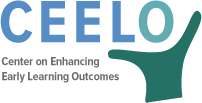
EXCELLENCE FOR EVERY CHILD: Improving the Quality of Teaching Birth through Grade Three
Minneapolis, MN | June 2014
Roundtable 2014 Reflections
This resource highlights key information from the Roundtable on how to cultivate and support quality teaching. It also provides links to valuable resources identified by participants.
The meeting is collaboratively planned with national technical assistance partners to build capacity of state agency leaders and early childhood specialists to provide informed leadership about research-based practices that directly impact the development and learning of children, birth through grade three. The meeting will provide early childhood state agency leaders and specialists with cutting edge research and innovative proven practices to enhance state policies and programs.
Desired Outcomes – as a result of this meeting, participants will:
- Strengthen partnerships across states in addressing issues that face state specialists.
- Broaden awareness of what research says about how quality teaching enhances excellence for every child, birth through grade three.
- Increase awareness of best practices and successful strategies for what state leaders need to know and be able to do to improve the quality teaching for children birth through grade three.
- Identify technical assistance needs to support state leadership efforts to enhance teaching effectiveness and strategies.
Download a pdf copy of this agenda here.
| Wednesday – June 4, 2014 | ||
| 3:00 | NAECS-SDE New Member Orientation | |
| 4:00 | NAECS-SDE Committee Meetings | |
| 6:00 | Welcome Reception – hosted by NAECS-SDE, CEELO, ECEA SCASS, RTT-ELC TA and other partners | |
| <pstyle=”text-align: center;” align=”center”>Thursday – June 5, 2014 | ||
| 7:30-9:00 | Breakfast and Networking | |
| 8:00-9:00 | NAECS-SDE Business Meeting (full, associate, and affiliate members) | |
| 9:00- 9:15 | WELCOME: Agenda Overview and Introductions
|
|
| 9:15-10:00 | Keynote: Improving Teaching By Applying The Science Of Learning
|
|
| 10:00-11:00 | Content, Curriculum, and Pedagogy: Creating Coherence and ExcellencePanelists:
|
|
| 11:00- 11:15 | BREAK | |
| 11:15 – 12:15 | Breakout 1– Beyond the Rhetoric of Developmentally Appropriate Practice: Improving the Quality of Teaching and Learning
Small group opportunity for states to work with experts and share info with states on topic and brainstorm policy implications for states |
|
| 12:15-12:30 | Set up for lunch | |
| 12:45-1:45 | LunchLibby Doggett – U.S. Department of Education, Deputy Assistant Secretary for Policy and Early Learning Bio here | |
| 1:45- 2:30 | State of Our State: What it takes to lead multiple policy reformsto improve teaching quality – Minnesota ReflectionsSpeakers: | |
| 2:30-2:45 | Break | |
| 2:45- 4:00 | Breakout 2: Topical Learning Café on Policy Issues Impacting Quality of Teaching Small group discussions for participants and experts to discuss more deeply a specific topic or policy issue that impacts teaching quality. |
|
| 4:00-4:15 | Short stretch and take down room dividers | |
| 4:00 – 4:45 | Summary Activity – Reflections on the day, provocations for tomorrowRespondents:
|
|
| 4:45 | Housekeeping – Announce Scholastic Light Award Dinner | |
| 5:00 | Meeting Adjourns | |
| 6:00 | Scholastic Light Award Dinner | |
|
Friday – June 6, 2014 |
||
| 7:30- 8:45 | Breakfast and Networking | |
| 8:45 – 9:00 | Agenda Overview and Reflections on Day 1
|
|
| 9:00 – 9:45 | Voices from the Field: Teachers and Leaders (Birth to grade 3) living the work: Challenges and successes of policy implementation
|
|
| 9:45 – 10:15 | Research Findings with Implications for Policy to Improve Teaching Quality
|
|
| 10:15- 11:00 | What have RTT-ELC States Learned about State Leadership to Improve Teaching Quality:Lessons Learned for All States
Panelists:
|
|
| 11:00-11:15 | Break | |
| 11:15-12:15 | Breakout 3:Regional Meetings- Sharing and Planning for On-Going Learning States convene by regions to discuss the successes and challenges they face as leaders in the region on how to promote a vision and policy to improve quality of teaching.Planning for follow-up technical assistance after the meeting. | |
| 12:15-12:30 | Stretch and set up for Lunch | |
| 12:30-1:30 | Lunch
|
|
| 1:30-2:30 | Future Directions of the NIEER State of Preschool Yearbook
|
|
| 2:30-3:30 | Provocation and Discussion:Elevating the Early Childhood Profession Panelists:
|
|
| 3:30-4:00 | Wrap-up & Adjourn | |
PRELIMINARY READINGS
Please try to read the following resources before you attend the meeting. This will help you become immersed in the research and policy issues impacting the theme of our meeting.
- A Window to the World: Early Language and Literacy Development from ZERO TO THREE
- Creating Coherence: Common Core Standards, Teacher Evaluation and Professional Learning from the Center on Great Leaders and Teachers
- Excellent Teachers for Each and Every Child: A Guide for State Policy from a partnership of seven organizations.
- Understanding and Mastering Complexity: The Five New Cognitive Complexities that Teachers Confront by Donna Wilson and Marcus Conyers
Early Experiences Matter: A Guide to Improved Policies for Infants and Toddlers from ZERO TO THREE
English Language Learners: A Growing – Yet Underserved – Student Population from the Education Commission of the States
Envisioning a Digital Age Architecture for Early Education Policy Brief by Lisa Guernsey
Evaluating Teachers with Classroom Observations: Lessons Learned in Four Districts by Russ Whitehurst, Matthew Chingos, and Katharine Lindquist
From Good To Great: Exemplary Teachers Share Perspectives on Increasing Teacher Effectiveness Across the Continuum, with companion, “Discussion Starter Tool” from the Center on Great Teachers and Leaders
Is Kindergarten the New First Grade? The Changing Nature of Kindergarten in the Age of Accountability by Daphna Bassok and Anna Rorem-
Lead Early Educators for Success: Series of Four Briefs from the Language Diversity and Literacy Development Research Group, Harvard University
Math in the Early Years: A Strong Predictor for Later School Success from the Education Commission of the States
One of These Things is Not Like the Other- Infographic from the Third Way
Recommended Practices in Early Intervention/Early Childhood Special Education from the Division for Early Childhood of the Council for Exceptional Children
State Funded PreK Policies on External Observations: Issues and Status by Debra Ackerman
Teaching: The Next Generation Report and Infographic from the Third Way
Time to Improve: How Federal Policy Can Promote Better Prepared Teachers and School Leaders by Melissa Tooley and Laura Bornfreund
We are designing the 2014 Roundtable to offer an opportunity for deep discussion on how state policymakers can support all teachers and administrators to improve the quality of teaching in birth through third grade settings. Some of you may already spend lots of time in the field, and others of us have not had the opportunity recently. In order to situate our discussion in the every day realities of teacher’s and children’s experience, we invite you to consider spending a day in the field, observing in an early learning classroom and talking with teachers, students, and principals or program directors. If you are unable to visit a classroom or talk to teachers directly, we have identified some videos that may be useful (though not quite as compelling as a face to face visit!).
We plan to build in lots of time to share your observations and impressions in discussions with national leaders, invited experts, and colleagues, all with a focus on supporting state leaders in their important role of improving the quality of teaching.
Suggestions for Observing and Talking to Teachers and Administrators
Your lens for the visit should be “Improving the Quality of Teaching for Birth – 3rd Grade,” the theme of the 2014 Roundtable. You are not being asked to conduct formal assessments; rather, you are encouraged to observe and reflect on what you see and hear. In particular, pay attention to:
- Interactions– among children, children and teachers, teachers and parents, etc.
- Schedules and use of time
- Curriculum (content, program models)
- Methods for teaching
- Adaptations for inclusive teaching and learning
- Assessment and documentation strategies
- Family engagement
We suggest that you visit an age/grade classroom that is outside your typical focus or responsibilities. As a pre-K specialist, you may want to visit an infant-toddler program or second grade classroom. If you have an opportunity to talk with teachers or administrators in the course of your day, consider collecting responses to the following questions to share at the meeting:
Teachers
- What do you love most about teaching?
- What do you find most challenging about your work?
- What impresses you about excellent teaching among your colleagues? What do you look for?
- How much latitude do you have in making decisions about your teaching (e.g., curriculum models, teaching strategies, scheduling, etc.)?
- If you could change the direction of early education, where would you take it?
- What additional support would you like to improve the effectiveness of your teaching?
Administrators/Principals
- How much of your time are you able to devote toward being an instructional leader or coach?
- How do you support teachers? Children? Families?
- What was most helpful in preparing you to be the leader of this program/school?
- What additional information or experience would have been useful before taking on this role?
- How does the state department of education make your work easier? Harder?
Children
- What do you like most about school? Least?
- What have you learned this year that is really important for children to know?
- Is there anything you’re having a hard time learning? What does your teacher do to help?What makes your teacher so special?
Video Options- If you can’t get to a classroom, see these videos to hear teachers talking about their work:
- What Makes Teachers Great
- PS Teacher Talks about her Work
- PS Teacher Conversation
- First Year Teaching Documentary
- NIEER- Mothers discuss preschool benefits
- What great teachers do
- Teaching Channel- video clips sortable by age/grade and subject
State Developed Videos
- CA Early Edge kindergarten teacher and principal discusses benefits of preschool
- CO- Results matter video library
- GA- Georgia Early Learning and Development Standards (GELDS)
- HI- Implementing formative assessment, kindergarten inventory of development
- NJ Implementing High Quality Kindergarten
- RI- Implementing Teacher Evaluation – Implementing Student Learning Objectives
PRESENTATION SLIDES (organized by presenter last name)
Steve Barnett: Research Findings with Policy Implications to Improve Teaching
Juanita Copley: Early Mathematics: Content, Curriculum, and Pedagogy
Harriet Egertson: Schultz* on 40-ish Years of NAECS/SDE
Gail Jordan: Language & Literacy
Mary Louise Hemmeter: Science, Math, Literacy, and Social-Emotional Development in Early Childhood – Can We Do It All?
NIEER: What Lies Ahead? The Future of the NIEER Yearbook
Donna Wilson (Keynote): Improving Teaching by Applying the Science of Learning
